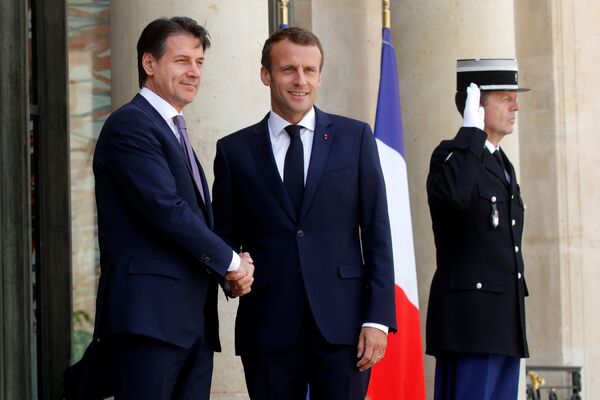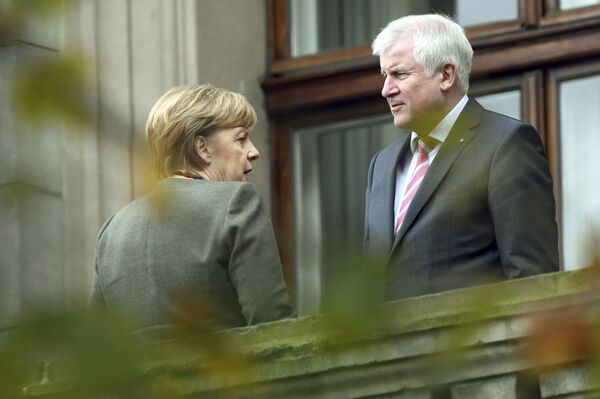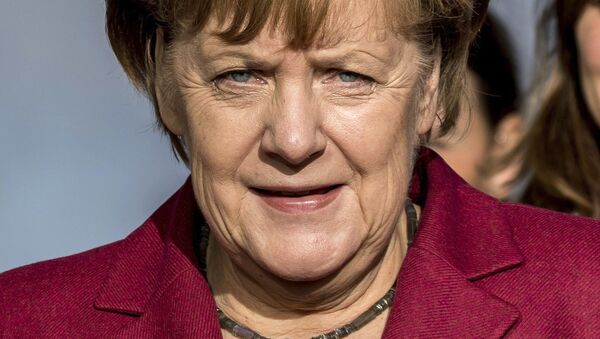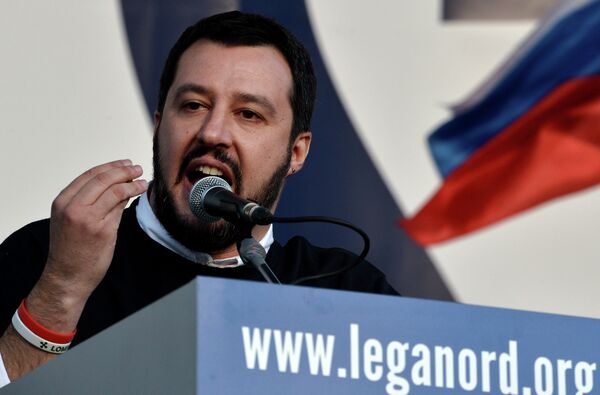Italy seeks "Profound" Changes
Italian Prime Minister Giuseppe Conte is expected to voice two demands to German Chancellor Angela Merkel during their first meeting since his appointment, according to the German outlet Deutshe Welle. First, he demands a change in current EU migration rules, according to which migrants are to be registered in the European country they first set foot in. The so-called Dublin Regulation particularly impacts Italy as well as Greece, as these countries act as gateways for migrants entering Europe across the Mediterranean from Africa and across the Aegean Sea from the Middle East.

The second topic on the agenda is the opening of asylum processing centers outside the EU. Both proposals were backed by France, when Conte met French President Emmanuel Macron and voiced a call for “profound” changes on June 15. The French leader is to meet Merkel the next day after Conte, bringing the same issues to the table along with the topic of more funding for Europe's united border control service, Frontex.
READ MORE: Frontex to Hire 200 Staff in 2017 Bringing Total to 600 — Press Release
The Italian government, a coalition between the right-wing League and populist 5-Star Movement formed after months of debates just several weeks ago, has taken a tougher stance on the migration policy than its predecessors. The new Interior Minister and Deputy Prime Minister, League’s leader Matteo Salvini, has made headlines with his anti-migration remarks, stating among others that Italy is not “Europe's refugee camp.”
“Masterplan” of Discord
This shuttling takes place two weeks before the EU summit, scheduled for the end of June, where migration policy and border control are to be discussed. Before the European leaders meet up at the end of June, Merkel must to sort out the row over migration policy within her own government, prompted by the leader of Bavaria’s Christian Social Union Horst Seehofer, with his “Masterplan of Migration,” who was recently appointed Minister of the Interior.
READ MORE: Merkel on Migration Crisis: Germany Should Not Act Alone
The set of measures contains the proposal to turn away migrants at the German borders, who have been registered or requested asylum in other countries, which is opposed by Angela Merkel. If it comes into force, the package will impact other EU member states, particularly those situated at the European frontiers, such as Greece, Italy and Spain. It’s also feared to affect border-free travel inside Europe as well as Germany’s relationship with other countries. Seehofer, one of the strongest anti-mass-migration voices among Germany's traditional conservatives, wrote in his article for the German newspaper Frankfurter Allgemeine Zeitung that "it is essential that the EU summit takes a decision at the end of June.” However, he stated that "The situation is serious but still solvable."
‘Day X’ for the CDU/CSU Alliance
The migration feud between the 50 year-marriage between Merkel’s Christian Democratic Union and its Bavarian twin, Seehofer's Christian Social Union, has triggered rumors over their break-up. Over the weeks, politicians from both sides have exchanged jibs and critical remarks, while the German media fueled the row with leaks from the top parties. The German tabloid Bild has reported June 18 to be a "destiny day for Angela Merkel and for the government."
READ MORE: Iraqi Refugee Suspected of Killing German Teen Girl Detained — Interior Minister
Meeting this day, the CSU will make decision on Seehofer’s project. According to the Bavarian head, CSU's Markus Söder, the party wants to support the provision, then the Minister is to decide how to implement it. One option is to set it into action despite Merkel’s opposition, which can lead to his resignation as earlier an unnamed CDU source told Bild that Seehofer’s resistance could force Merkel to fire him, which "would be the end of the government and the alliance between CDU and CSU."

There’s a second option, as, according to the newspaper Bild, Seehofer will demand to find a common EU-wide solution within two weeks. If these demands are not met, the interior minister is going to issue a ministerial decree ordering police to introduce border checks and send back migrants who lack official asylum in Germany.
READ MORE: German MP: 'Merkel is Chancellor for Refugees, Not for German People'
While the fate of the Interior Minister and his bill is unclear, the German government agency in charge of migrant-related issues, supervised by Seehofer, is reportedly set to receive a “tough” new director from CSU after his predecessor was fired over a corruption scandal. Hans-Eckhard Sommer, a member of the Christian Social Union (CSU) in Bavaria and an ally of German Interior Minister Horst Seehofer, is about to be appointed as chief of the country’s Federal Office of Migration and Refugees (BAMF), DPA and Focus Online report citing anonymous government sources.
READ MORE: Bavaria's 'Tough Dog' Reportedly Set to Lead Germany’s Federal Refugee Agency
Since 2015, Europe has been struggling to cope with the effects of hard-to-control immigration, with hundreds of thousands of migrants fleeing their conflict-torn countries in the Middle East and Africa.
Although Brussels introduced special quotas to distribute migrants in the bloc more evenly, some European governments have refused to follow the regulations, and are calling for closed borders. Germany took in 325,400 refugees in 2017, accounting for almost 60 percent of the 540,000 migrants resettled last year, according to the European statistics office. In 2015, when the “open borders” policy was announced, the country accepted over a million refugees.



